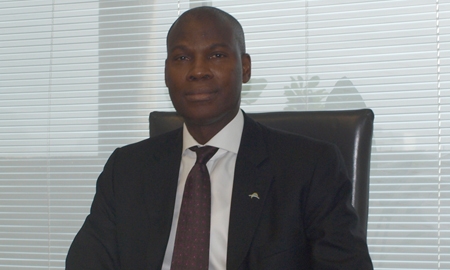
Bonds are generally defined as a loan given to a government in exchange for certificate of investment and differ substantially from shares. While typical shares represent an entitlement to ownership of a specific company, bonds are loans or debt which is owed by the issuer to anyone who may choose to take them up. This key difference represents one of the main advantages that investing in bonds holds over investing in stock. Generally, investing in debt is safer than investing in equity, simply due to the fact that debt holders have a priority over shareholders in the event of a company filing for bankruptcy. If this happens, debt holders will receive capital before any shareholders do. Creditors often receive their investments back in the case of bankruptcy while shareholders may lose their investment.
In January of 2011 Nigeria issued a $500 million Eurobond with a 7 per cent yield: the offer was oversubscribed 2.5 times. People have speculated as to why the country would take the bond option and the decision was widely discussed among those involved in the Nigerian economy, with members of different financial organisation expressing concern as to whether the decision taken would be a successful one.
| At the time the Eurobond was issued Nigeria’s foreign reserves were over sixty times the size of the bond itself, and the external debt to GDP ration was just 2.3% |
But Nigeria’s Minister of Finance at the time, Olusegun Aganga, was bullish in his assessment of the offer, and its success. “This single transaction clearly puts Nigeria on the global map. We now have a transparent and internationally observable benchmark against which international investors can accurately price risk.”
The delay in the bond offering, and the fact that the amount was relatively small when compared to other international dealings at the time, was due to caution and fear of failure in the international marketplace. Eurobonds are issued in by an international syndicate and normally categorised by the currency in which they are denominated. The Eurobond issued in London by the Nigerian government was denominated in U.S. dollars – known as a Euro-Dollar bond. At the time Nigeria had the option to issue this Euro-Dollar bond in any country other than the U.S. The Eurobond represents an attractive financing tool to many countries as they offer the issuer the flexibility to choose any country in which to offer their bonds. This allows the issuer to choose a country whose regulatory constraints and legislation suits the issuer’s needs, as well as giving them the opportunity to denominate their Eurobond in whatever currency they choose. These bonds are attractive to potential investors as they tend to have high liquidity and small par values. The Eurobond issued by Nigeria last year is set to represent a benchmark yield curve for the country in the global market, resulting in the ability to easily repay investors rather than simply raising funds. At the time the Eurobond was issued Nigeria’s foreign reserves were over sixty times the size of the bond itself. The country also had an external debt to Gross Domestic Product ratio of just 2.3 per cent, meaning the risk of default on the Eurobond was negligible.
However, some experts are speculating whether this Eurobond puts the Nigerian economy at risk, as it may expose the nation’s banks to foreign exchange fluctuations and other risks that can occur because of external borrowing. However, the decision made by Nigeria to raise funds from the international financial market is not an indication that its banks are experiencing problems, but rather a reflection of the strength, capability and credibility displayed by these financial institutions.
Many Nigerian banks have already successfully sought funds from the international financial market and multilateral institutions, or have announced plans to do so. Guaranty Trust Bank‘s five-year Eurobond offer of 2011, the largest by any Nigerian corporate to international investors, was rated ‘Best Financial Institution Bond for Nigeria’ by EMEA Finance UK. Segun Agbaje, Managing Director, Guaranty Trust Bank says, “We will continue to seek for funds that would enable us carry on our global expansion programme, acquire the best IT infrastructure to enhance service delivery and compete favourably with other international banks in terms of ability to lend. Our 2011 Eurobond offer was totally oversubscribed, and is placed with over 30 accounts in Europe, United States, Asia and Africa.”
Meanwhile, Skye Bank has recently raised over $100 million at a floating coupon rate of 6.3 per cent spread over the course of seven years. Kehinde Durosinmi-Etti, Chief Executive Officer and Managing Director of Skye Bank, has stated that the bond issuance programme will boost the bank’s capital base and add almost 2 per cent to its capital adequacy ratio. And Diamond Bank is to seek the approval of its shareholders at its next general meeting in order to raise $200 million, claiming they would target strategic investors including the subsidiary of the World Bank, the International Finance Corporation.
0 COMMENTS